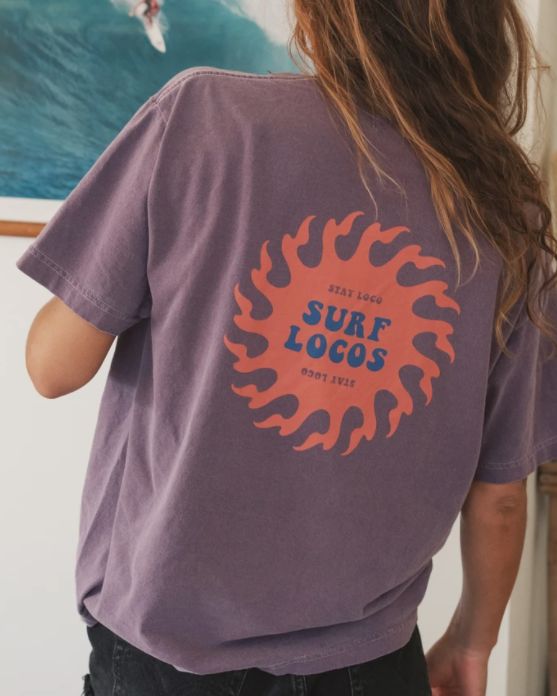Introduction
Recycled t-shirts are rapidly gaining traction as a key trend in sustainable fashion. As consumers become more environmentally conscious, the demand for eco-friendly alternatives to traditional apparel is on the rise. This article delves into the factors behind the popularity of recycled t-shirts, their benefits, and how they are shaping the future of fashion.
The Appeal of Recycled T-Shirts
Eco-Conscious Consumerism
Today’s consumers are increasingly aware of the environmental impact of their choices. Recycled t-shirts align with their desire to reduce waste and minimize their carbon footprint. By repurposing old materials, these t-shirts contribute to a circular economy.
Unique and Trendy Designs
Recycled t-shirts often feature unique designs created from reclaimed fabrics. This originality appeals to fashion-forward individuals looking for distinctive styles while supporting sustainability.
Affordability Without Compromise
Many recycled t-shirt brands offer affordable options without sacrificing quality. This combination of cost-effectiveness and environmental responsibility makes them an attractive choice for a wide range of consumers.
The Process Behind Recycled T-Shirts
Sourcing Materials
Recycled t-shirts are made from a variety of sources, including post-consumer waste, such as discarded garments, and pre-consumer waste, like fabric scraps from factories. These materials are collected, sorted, and cleaned to ensure quality.
Breaking Down and Rebuilding
Once collected, the textiles are shredded into fibers and re-spun into new yarn. This process reduces the need for virgin materials, saving resources and energy.
Innovative Production Techniques
Advancements in technology have made it possible to create high-quality fabrics from recycled materials. Techniques such as waterless dyeing and low-energy processing further enhance the sustainability of recycled t-shirt production.
Environmental Benefits of Recycled T-Shirts
Reduction in Textile Waste
The fashion industry generates millions of tons of textile waste annually. Recycled t-shirts help divert this waste from landfills, giving discarded materials a new lease on life.
Conservation of Resources
Recycling fabrics uses significantly less water, energy, and raw materials compared to producing new textiles. This conserves vital resources and reduces environmental strain.
Lower Carbon Emissions
By repurposing existing materials, recycled t-shirts require fewer processing steps, resulting in lower greenhouse gas emissions. This helps combat climate change and promotes a greener planet.
Social Impact of Recycled T-Shirts
Supporting Ethical Practices
Many recycled t-shirt brands prioritize ethical production, ensuring fair wages and safe working conditions for their employees. This commitment strengthens communities and promotes social equity.
Empowering Local Artisans
Some recycled t-shirt initiatives collaborate with local artisans, providing them with a platform to showcase their skills and create sustainable livelihoods.
Raising Awareness
By choosing recycled t-shirts, consumers help spread the message of sustainability. This fosters a culture of responsibility and inspires others to make eco-conscious decisions.
Challenges Facing the Recycled T-Shirt Industry
Quality Concerns
Ensuring the durability and comfort of recycled t-shirts can be challenging. However, ongoing innovations in fabric technology are addressing these issues.
Cost of Production
The recycling process can be more expensive than conventional methods, posing a challenge for small-scale producers. Economies of scale and technological advancements are helping to lower costs over time.
Consumer Perceptions
Some consumers may view recycled t-shirts as inferior or less fashionable. Clear communication and education about their benefits are key to changing these perceptions.
Opportunities for Growth
Collaboration with Big Brands
Partnerships between recycled t-shirt producers and established fashion brands can drive widespread adoption and bring sustainable fashion into the mainstream.
Expansion into New Markets
As awareness grows, there is significant potential to expand recycled t-shirt offerings into emerging markets, catering to a global audience.
Embracing Technological Advancements
Innovations in recycling techniques and materials will continue to enhance the quality and appeal of recycled t-shirts, ensuring their place in the future of fashion.
The Future of Recycled T-Shirts
Recycled t-shirts represent more than just a trend; they are a symbol of the fashion industry’s shift towards sustainability. By embracing eco-friendly practices and supporting innovative solutions, consumers and brands alike can contribute to a more sustainable future.
Conclusion
Recycled t-shirts are poised to become a cornerstone of sustainable fashion. Their environmental and social benefits, combined with unique designs and growing consumer interest, position them as a key player in the industry’s transformation. As we move towards a greener future, recycled t-shirts offer a compelling solution to the challenges of fast fashion.

